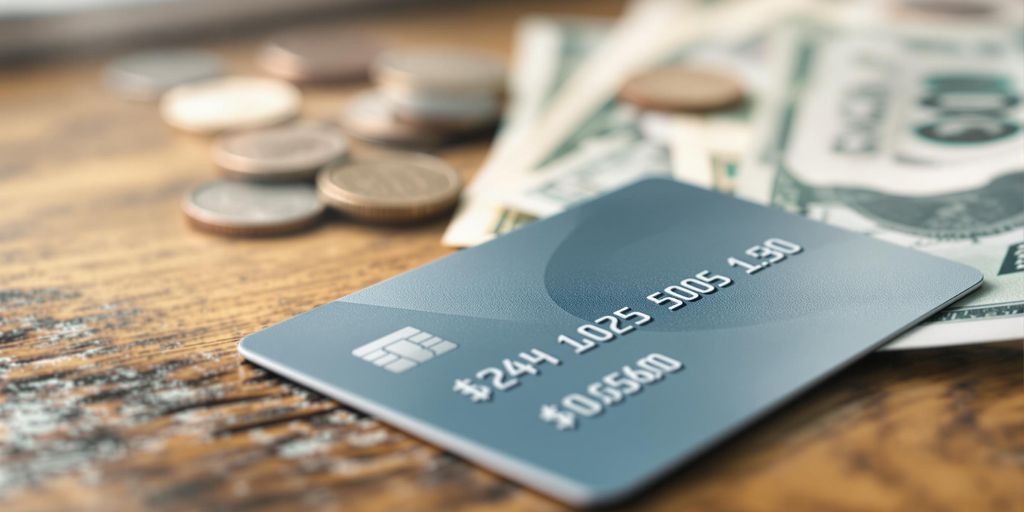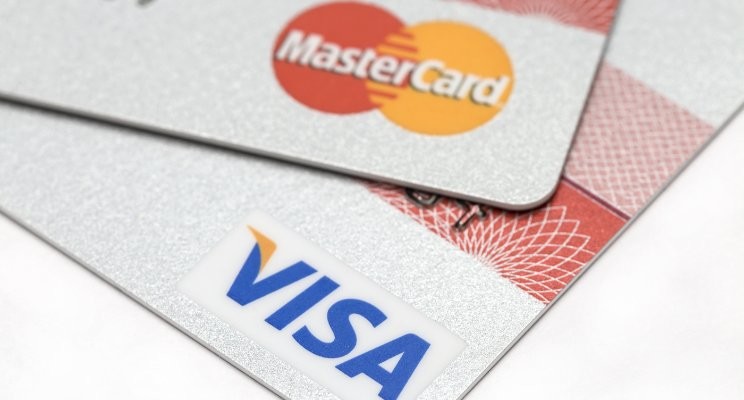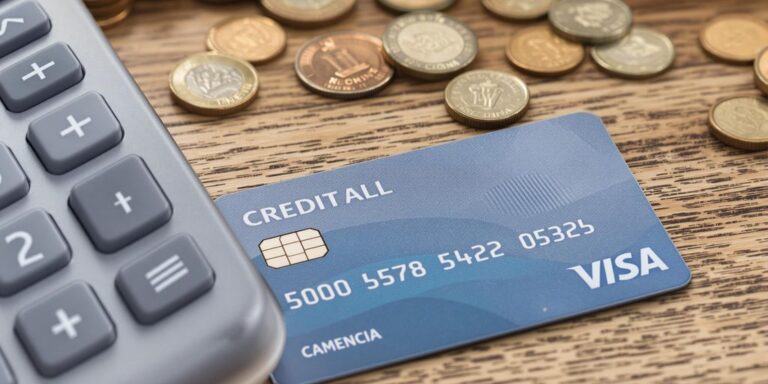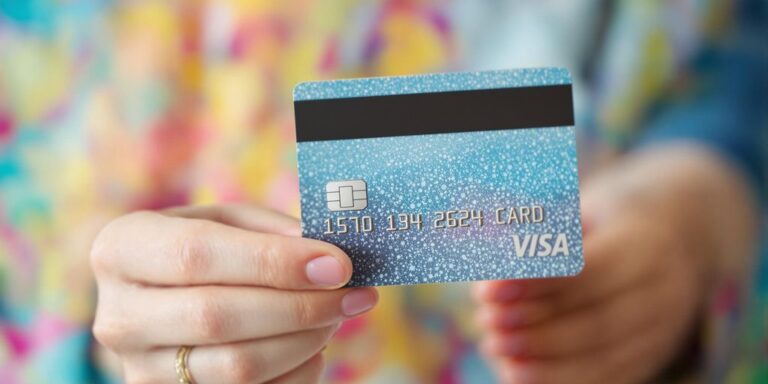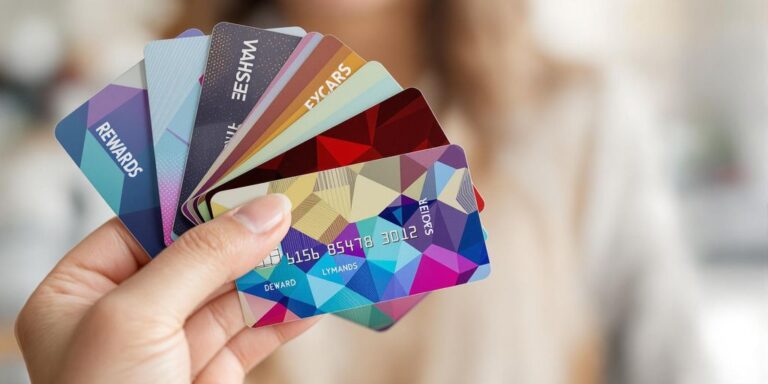10 reasons to use your credit card
Using a credit card can offer numerous benefits that go beyond just making purchases. In this post, we will explore 10 compelling reasons to use your credit card, from building your credit score to earning rewards on everyday spending. Understanding these advantages can help you make smarter financial choices and maximize the value of your purchases. Get ready to discover how your credit card can work for you.
1. One-Time Bonuses
When you sign up for a new credit card, one of the coolest perks is the one-time bonus offer. These bonuses can be a sweet deal if you play your cards right. Imagine getting $150 or more just for hitting a spending target in the first few months. That’s like getting rewarded for shopping! Usually, this means spending anywhere from $500 to a few thousand dollars, depending on the card.
Here’s a quick breakdown of what you might score with these bonuses:
- Cash Bonuses: Some cards will give you cash back as a welcome gift. It’s like a little “thank you” for choosing them.
- Bonus Points or Miles: Other cards might offer points or miles. These can be used for travel, gift cards, or even to pay off part of your bill.
- Statement Credits: Sometimes, you’ll get a credit on your bill, reducing what you owe right off the bat.
Getting a new credit card isn’t just about spending; it’s about making your money work for you. By choosing a card with a solid one-time bonus, you can kickstart your rewards journey and make your spending count.
Unlike debit cards, which usually don’t offer these perks, credit cards give you a chance to earn something extra just for signing up and using them. So, if you’re planning a big purchase or just want to maximize your everyday spending, these bonuses can be a nice cherry on top. Discover offers an enticing bonus for new cardmembers with an Unlimited Cashback Match, automatically doubling all cash back earned during the first year. This is just one example of how these bonuses can add up, especially if you’re strategic about your spending.
2. Cash Back
Cash back credit cards have become a popular choice for many people looking to maximize their spending. The basic idea is simple: use your card for purchases and earn a percentage of that money back. It’s like getting a small discount every time you shop.
Why Cash Back?
- Flexibility: Unlike other rewards that might be tied to specific airlines or hotels, cash back is straightforward. It’s money in your pocket that you can use however you want.
- Simplicity: There’s no need to worry about points expiring or complicated reward systems. You spend, and you get money back.
- Savings on Everyday Purchases: Whether you’re buying groceries, filling up the gas tank, or dining out, cash back cards offer a return on your everyday expenses.
How Much Can You Earn?
Different cards offer varying percentages of cash back. Here’s a quick look at potential earnings:
| Spending Category | Monthly Spend | Cash Back Rate | Annual Cash Back |
|---|---|---|---|
| Groceries | $475 | 6% | $342 |
| Restaurants | $300 | 5% for 3 months, 3% for 9 months | $126 |
| Gas | $260 | 5% for 6 months, 3% for 6 months | $124.80 |
| Amazon.com | $100 | 5% for 6 months, 2% for 6 months | $42 |
| Streaming Media | $60 | 6% | $43.20 |
| Travel | $1,000/year | 5% | $50 |
| Everything else | $1,000/month | 2% | $240 |
Total Annual Cash Back: $968
Choosing the Right Card
When picking a cash-back credit card, consider the categories where you spend the most. Some cards offer higher rates for groceries or gas, while others might focus on travel or dining. Also, check for any annual fees or caps on the amount of cash back you can earn.
“Cash back rewards can really add up over time. It’s like getting a bonus just for spending on things you already need.”
Remember, while cash back is great, it’s important to pay off your balance in full each month. Otherwise, any interest charges could easily outweigh the benefits of your cash back rewards. So use your card wisely and enjoy the perks of money back in your pocket.
3. Rewards Points

Credit cards with rewards points programs are like a treasure trove for savvy spenders. They offer a way to earn points on everyday purchases, which can later be redeemed for a variety of goodies. These points can be exchanged for travel perks, gift cards, or even merchandise. It’s all about making your spending work for you.
Here’s a quick rundown on how to make the most of your rewards points:
- Identify Bonus Categories: Many cards offer extra points for spending in certain categories like dining, groceries, or gas. If you frequently spend in these areas, you can rack up points quickly.
- Maximize Welcome Bonuses: New cardholders often get a hefty bonus if they spend a certain amount within the first few months. This can be a great way to boost your points balance right off the bat.
- Keep an Eye on Promotions: Card issuers might offer limited-time promotions where you can earn double or triple points on specific purchases.
The key to getting the most out of your rewards points is to align your spending with the card’s rewards structure. Don’t change your spending habits just to earn points; instead, choose a card that complements your existing spending patterns.
If you’re looking to maximize points, focus on bonus category spending and promotional offers. This approach ensures you’re squeezing every bit of value from your card. By understanding and utilizing these strategies, you can turn your everyday expenses into meaningful rewards.
4. Frequent-Flyer Miles

Frequent-flyer miles have been a staple of travel rewards since the early 1980s, when American Airlines teamed up with Citibank to offer a novel way to earn miles without actually flying. Today, almost every airline offers a credit card that lets you rack up miles simply by making everyday purchases.
Here’s how it typically works: for every dollar you spend using your card, you earn a mile. Some cards, especially those with no annual fee, might offer one mile for every two dollars spent. The true value of these miles shines when you redeem them for airline tickets. Depending on the flight and the airline, the savings can be substantial.
Many cards also come with enticing mileage-based introductory bonuses. These bonuses can often cover a significant portion of an award flight just by meeting the initial spending requirements. Imagine being halfway to a free flight simply by using your card for regular expenses.
Earning miles through credit card purchases is like saving up for a future adventure. With the right card, those everyday expenses can quickly add up to a memorable trip.
To make the most out of your miles, it’s crucial to understand how to earn and redeem them effectively. For a comprehensive overview, check out this guide on mastering travel rewards, which covers everything from earning points to redeeming miles efficiently.
5. Safety
When it comes to keeping your money secure, credit cards can be a pretty solid choice. Unlike debit cards, where fraudulent charges can immediately drain your bank account, credit cards offer a layer of protection. If someone swipes your credit card info, you just report it to the credit card company and they handle the rest. You don’t have to pay for those unauthorized charges while they sort things out, which is a huge relief.
Here’s a quick rundown of why credit cards are safer:
- Zero Liability Protection: Major credit card networks, like Visa and Mastercard, provide zero liability for unauthorized transactions. This means if someone uses your card without permission, you’re not on the hook for those charges.
- Fraud Alerts: Most credit card companies offer fraud alert services. They keep an eye on your spending patterns and will notify you if something seems off.
- Dispute Assistance: If you run into any issues with a purchase, your credit card company can step in to help resolve disputes with vendors, sometimes even getting you a refund when you can’t get one directly from the merchant.
Using a credit card can be a more secure way to manage your money, especially when shopping online or traveling.
While there are extra protections available, it’s essential to consider their value against the costs to see if they’re worth it. Credit cards not only help keep your finances safe but also give you peace of mind knowing you have some backup if things go wrong. So, next time you’re deciding between cash, debit, or credit, remember the safety net that credit cards provide.
6. Keeping Vendors Honest

When you use a credit card, you’re not just paying for convenience—you’re also ensuring a level of protection against dishonest vendors. Imagine hiring a contractor to redo your kitchen. They promise the world, but once the work is done, the quality is subpar, and they’ve already cashed your check. This is where your credit card comes into play.
Why Paying with a Credit Card Helps
- Withholding Payment: If you dispute a charge, the credit card company can withhold payment to the vendor until the issue is resolved. This leaves the vendor without their money until they fix the problem.
- Incentive for Honesty: Vendors know that credit card companies can and will intervene if there’s a dispute. This encourages them to deliver quality service from the start.
- Support in Resolution: Credit card companies often provide assistance in resolving disputes, sometimes even helping you find alternative solutions or vendors.
Using a credit card for significant purchases not only safeguards your money but also keeps vendors accountable for their promises. It’s a financial advantage that goes beyond just the transaction.
For those new to credit, using a credit card can also help in building credit, while ensuring that vendors stay true to their word. This dual benefit makes credit cards a smart choice for many consumers.
7. Grace Period
Ever wondered why using a credit card might be better than a debit card? One big reason is the grace period. When you make a purchase with a credit card, your money doesn’t leave your account right away. Instead, you get a little breathing room—usually between 21 to 25 days—before your payment is due. During this time, you can keep your funds in your bank account, potentially earning interest if it’s an interest-bearing account.
The grace period can be a lifesaver when you’re managing your monthly budget. It allows you to make purchases now and pay later without accruing interest, as long as you pay off your balance in full by the due date. This means you can utilize the grace period effectively by planning your expenses and making sure you have the cash ready when the bill comes.
Here’s a quick rundown of why the grace period is a handy feature:
- Interest-Free Window: Pay your balance in full each month, and you won’t owe any interest on your purchases.
- Budget Flexibility: Helps in managing cash flow, especially when unexpected expenses pop up.
- Earn Interest: Keep your money in the bank longer, earning a bit more if your account pays interest.
Using a credit card’s grace period wisely can stretch your dollars a bit further, helping you manage your finances more effectively without the immediate pressure of payment.
Remember, this only works if you’re disciplined about paying off your balance each month. Otherwise, interest charges can quickly outweigh any benefits. So, keep track of your spending and make the most of that grace period!
8. Insurance
Using a credit card can offer a surprising amount of insurance benefits that many folks might not even realize they’re getting. Imagine booking a trip and then something unexpected happens—like you get sick or your plans change. Well, with certain credit cards, you might be covered for trip cancellations or even lost luggage. That’s a huge relief, right?
Types of Coverage
- Travel Insurance: This can include trip cancellation, trip interruption, and even medical emergencies while you’re traveling. It’s like having a safety net when you’re far from home.
- Purchase Protection: Bought something and it got stolen or damaged? Some credit cards will reimburse you for that. It’s like a little security blanket for your purchases.
- Car Rental Insurance: Renting a car? Your credit card might cover damages or theft, saving you from having to pay for extra insurance at the rental counter.
Credit card insurance benefits can offer peace of mind, making it easier to enjoy your travel and shopping experiences without constantly worrying about “what ifs.”
How to Make the Most of It
- Read the Fine Print: Every card is different. Check what your card covers and what it doesn’t.
- Keep Documentation: If you ever need to make a claim, having receipts and records will make the process smoother.
- Use the Right Card: If you have multiple cards, use the one that offers the best insurance benefits for your needs.
9. Universal Acceptance
Ever been caught in a bind because a store doesn’t take cash or checks? Credit cards are accepted almost everywhere, making them a go-to choice for many shoppers. Whether you’re grabbing groceries, booking a flight, or shopping online, a credit card is often the easiest payment method.
The Convenience Factor
- Ease of Travel: When you’re traveling, especially internationally, credit cards can be a lifesaver. They eliminate the hassle of currency exchange and are widely accepted at hotels, restaurants, and shops around the globe.
- Online Shopping: From Amazon to your local boutique’s website, credit cards make online shopping a breeze. No need to worry about bank transfers or cash on delivery.
- Emergency Situations: Need to pay for an unexpected car repair or medical bill? A credit card can be a quick solution when time is of the essence.
Global Reach
Credit cards offer a level of universal acceptance that other payment methods just can’t match. They’re your best bet when you need a reliable way to pay, no matter where you are.
Credit cards simplify transactions, offering a seamless experience whether you’re at home or halfway around the world.
A Few Considerations
While credit cards are incredibly convenient, it’s important to use them wisely to avoid unnecessary debt. Keep track of your spending and pay off your balance regularly to enjoy the benefits without the drawbacks.
Utilizing virtual credit card acceptance technology can further enhance transaction security and efficiency, making it an even more appealing option for businesses and consumers alike.
10. Building Credit

Building credit is a journey, and using a credit card can be one of the most effective ways to start. When you use a credit card, you’re demonstrating your ability to borrow money and pay it back, which is crucial for developing a solid credit history.
Why is this important? Your credit score, which is determined by your credit history, plays a big role in your financial life. A high credit score means you’re seen as less risky by lenders, making it easier to get loans or credit in the future.
Here’s how you can use a credit card to build your credit:
- Pay on Time: Always pay your credit card bills by the due date. Timely payments are a significant factor in credit scores.
- Keep Balances Low: Try to use only a small portion of your credit limit. This shows lenders you’re not overly reliant on credit.
- Hold onto Your Cards: The longer you keep a credit card account open, the better it can be for your credit score.
- Be Selective with New Cards: Avoid opening too many new credit card accounts at once, as each application can slightly lower your score.
A credit card can also help you track your spending. Each month, you’ll get a statement showing all your purchases, which can be a handy tool for budgeting.
Using a credit card responsibly is a powerful way to build a strong credit profile. Over time, this can help you secure better rates on loans, qualify for higher credit limits, and even assist in getting approved for housing or utilities.
For those with limited or no credit history, consider options like secured credit cards or student cards to start building credit. Discover effective strategies for building credit using a credit card, focusing on options like secured credit cards and student cards for individuals with limited or no credit history.
In summary, while you don’t need a credit card to have good credit, it’s a tool that, when used wisely, can significantly boost your credit score over time.
Wrapping It Up
So, there you have it, ten solid reasons to keep that credit card handy. Whether it’s racking up rewards, enjoying a little extra protection, or just making life a bit more convenient, credit cards can be a real asset when used wisely. Remember, the key is to stay on top of your spending and pay off your balance each month. That way, you can enjoy all the perks without the stress of debt. Keep these tips in mind, and you’ll be well on your way to making the most out of your credit card. Happy spending!
Frequently Asked Questions
What are the benefits of using a credit card?
Credit cards offer various perks like cash back, rewards points, and frequent-flyer miles. They also provide safety features such as fraud protection and help build your credit score.
How do credit cards help build credit?
Using a credit card responsibly by paying your bills on time helps build a good credit history. This history is used to calculate your credit score, which can make it easier to borrow money in the future.
What is a grace period on a credit card?
A grace period is the time between your purchase and the bill’s due date. If you pay your full balance by the due date, you won’t have to pay interest on your purchases.
Are credit cards safer than debit cards?
Yes, credit cards offer better fraud protection. If someone steals your credit card, you can report it and avoid paying for unauthorized charges, whereas debit card theft can immediately impact your bank account.
Can using a credit card save money?
Yes, many credit cards offer cash back, discounts, or rewards that can save you money on everyday purchases if used wisely.
Do credit cards have insurance benefits?
Many credit cards offer insurance benefits like rental car insurance, travel insurance, and extended product warranties, which can provide extra protection.
Why are credit cards widely accepted?
Credit cards are accepted almost everywhere, including places where debit cards might not be, like hotels or rental car companies. They also make international travel easier.
How do credit card rewards work?
Credit card rewards are points, miles, or cash back earned on purchases. These can be redeemed for travel, gift cards, or statement credits, depending on the card’s program.

